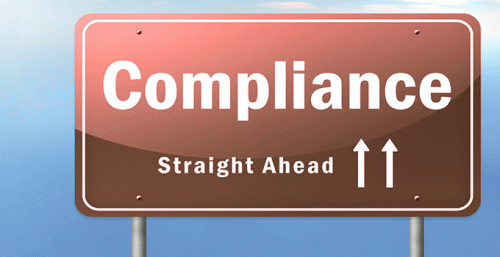Compliance
Compliance Corner: Hong Kong, Aberdeen Standard Investments, Others

A regular round-up of compliance news, such as fines, permissions, new technology solutions to make tracking risks easier, and other developments.
Securities And Futures Commission Of Hong
Kong
The
Securities and Futures Commission of Hong Kong has banned
former Goldman Sachs employee Tim Leissner from re-entering the
industry for life in connection with his crimes relating to
1Malaysia Development Berhad, the troubled Malaysian sovereign
wealth fund.
Leissner was licensed - but is no longer - under the Securities and Futures Ordinance to carry on Type 4 (advising people about securities), Type 6 (advising people about corporate finance) and Type 9 (asset management) regulated activities and was accredited to Goldman Sachs (Asia) LLC between 1 April 1998 and 24 February 2016.
In August 2018, Leissner pleaded guilty to criminal charges pressed against him by the United States Department of Justice for conspiring to launder money and to break the Foreign Corrupt Practices Act 1977.
Leissner admitted, among other things, that between 2009 and 2014 he conspired with others to:
-- obtain and retain business from 1MDB for Goldman Sachs
through the promise and payment of bribes and kickbacks to
government officials in Malaysia and Abu Dhabi;
-- embezzle funds from 1MDB for himself and
others;
-- launder the bribes and kickbacks as well as other
embezzled funds from 1MDB; and
-- knowingly and wilfully circumvent the controls of Goldman
Sachs.
The court in the United States decided that Leissner was guilty of these offences (bundled up into two charges) and ordered him to forfeit $43.7 million (HK$335.43 million) as a result of his crimes.
Leissner was responsible for Goldman Sach’s relationship with 1MDB, including the negotiation and execution of three bond transactions which Goldman Sachs arranged for 1MDB in 2012 and 2013.
Aberdeen Standard Investments
Aberdeen
Standard Investments, the UK asset management group,
announced that its wholly foreign-owned enterprise in China,
Aberdeen Standard Asset Management (Shanghai) Co, has won
approval from the Asset Management Association of China to
provide onshore investment advisory services in the country.
The WFOE can now offer investment advisory services to eligible onshore Chinese investors on products offered by domestic wealth management subsidiaries of commercial banks, securities and futures companies, fund management companies, as well as other types of asset management firms in China, ASI said in a statement yesterday.
BlackRock, the world’s biggest asset manager, and a subsidiary of Fullerton Fund Management, is among organisations that have received such regulatory clearance to operate as a WFOE.
“China is a strategic long-term focus for our firm. We are delighted to expand our onshore business to offer investment advisory services to the domestic investors. This is a testament to Aberdeen Standard Investments’ diverse investment expertise and track record, as well as our strong commitment to China. As we continue to invest and strengthen our presence in China, we look forward to bringing a broader range of investment opportunities and international best practices to address the needs of Chinese investors,” Hugh Young, head of Asia-Pacific at Aberdeen Standard Investments, said.
The business is proud to point out that it was one off the first foreign asset managers to establish an investment management WFOE in Shanghai. It expanded its business in the country after completing its Private Fund Management Company registration in November 2017.
Malaysia, LexisNexis
It costs market participants $890 million to comply with
anti-money laundering rules in Malaysia, a country that has been
wracked by corruption and the high-profile 1MDB dirty money saga.
The cost of AML compliance in the Southeast Asian country was given by LexisNexis Risk Solutions, and drawn from its True Cost of AML Compliance study, Malay Mail reported. (WealthBriefingAsia has asked LexisNexis for a copy of the report to confirm the details, and may update in due course.)
Much of the spending is done by larger firms in terms of assets, but the cost weighs proportionately more heavily on the shoulders of smaller businesses, the study reportedly said.
The cost of AML compliance is higher among smaller firms at an average of 0.14 per cent than larger firms at 0.07 per cent.
Malaysia has been at the epicentre of a major dirty money scandal that has spread around the world. The state-created 1MDB fund has been used, it is claimed, by former senior politicians and others as a slush fund. Banks that transacted Malaysia-linked money in Singapore have been kicked out for senior AML control failings, for example. Authorities in Switzerland and the US, among others, have launched probes.
The study said average compliance costs are spread similarly across labour-consuming activities, with over a quarter involving KYC, which consumes labour hours through information collection, list screening, and risk assessment, the report said.
